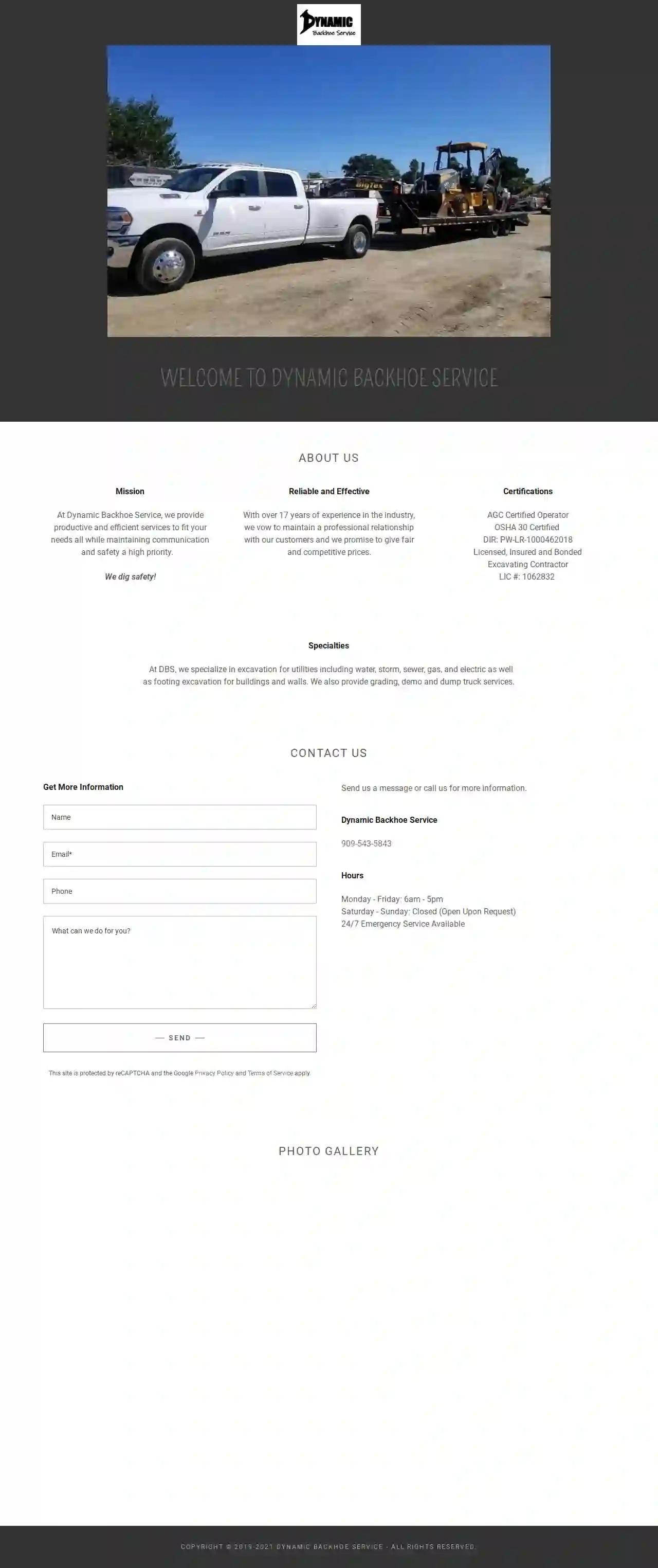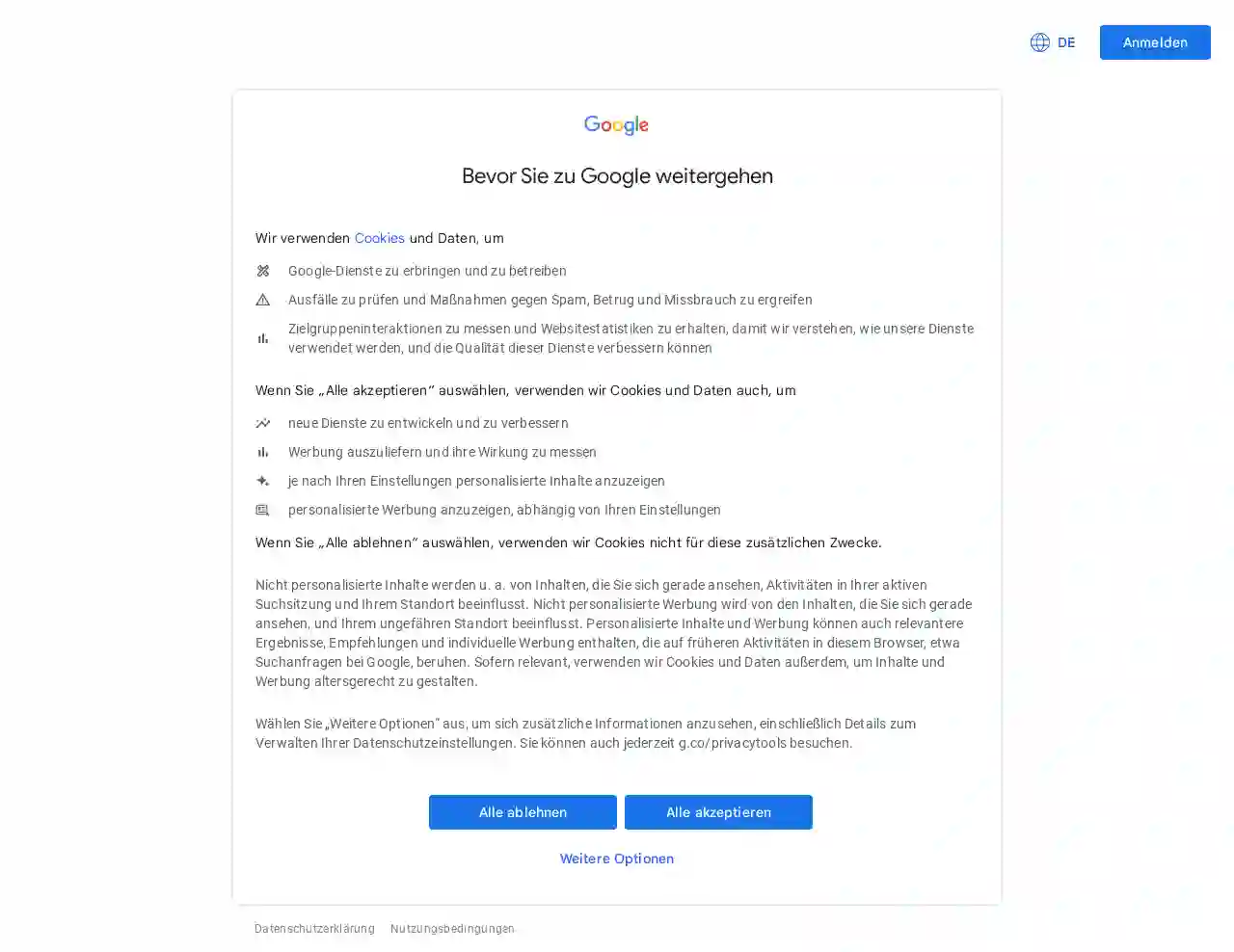Dirt Contractors Victorville
Top Dirt Contractor in Victorville
Receive 3 FREE Dirt Hauling quotes for your project today! Compare profiles, reviews, accreditations, portfolio, etc... and choose the best service.

Dynamic Backhoe Service
53 reviewsVictorville, USWelcome to Dynamic Backhoe Service At Dynamic Backhoe Service, we provide productive and efficient services to fit your needs all while maintaining communication and safety a high priority. We dig safety! With over 17 years of experience in the industry, we vow to maintain a professional relationship with our customers and we promise to give fair and competitive prices.
- Services
- Why Us?
- Accreditations
- Gallery
Get Quote
Ortega's Grading
52 reviewsVictorville, US- Services
- Why Us?
Get Quote
Affordable Weed Abatement
521 reviewsVictorville, USWhen you have eliminated the JavaScript , whatever remains must be an empty page. Um Google Maps verwenden zu können, muss JavaScript aktiviert sein.
- Services
- Why Us?
Get Quote
Ken Willis Construction, Inc
4.416 reviewsVictorville, USAbout Ken Willis Construction Inc. Ken Willis Construction Inc. is a local construction company dedicated to providing high-quality services to our clients. We have a team of experienced professionals who are committed to delivering exceptional results on every project. We specialize in a wide range of construction services, including [insert specific services here]. We understand that every project is unique, and we work closely with our clients to ensure that their vision is brought to life. We are committed to providing clear communication, transparent pricing, and a seamless construction experience. Our commitment to quality and customer satisfaction has earned us a reputation as a trusted and reliable construction partner in the community. We are proud to serve [insert local area served] and look forward to working with you on your next project.
- Services
- Why Us?
Get Quote
Over 3,943+ Excavation Contractors onboarded
Our excavation contractors operate in Victorville and beyond!
ExcavationHQ has curated and vetted Top Excavation Companies near Victorville. Find a reliable contractor today.
Frequently Asked Questions About Dirt Contractors
- Plant Selection: Understanding your soil's pH and nutrient levels helps you choose plants that will thrive in those conditions.
- Fertilizer Recommendations: Soil tests reveal nutrient deficiencies, allowing you to apply appropriate fertilizers to meet plant needs.
- Soil Amendments: Identify soil imbalances, such as compaction or high clay content, and recommend amendments to improve soil structure and drainage.
- Construction Projects: Assess soil bearing capacity and other properties to ensure the stability and safety of foundations and other structures.
- Environmental Assessments: Detect potential soil contamination and determine the need for remediation.
- Large-Scale Excavation: Assessing soil conditions, designing slopes, and ensuring stability for large excavation projects.
- Foundation Design: Determining the appropriate foundation type and depth based on soil bearing capacity and other factors.
- Retaining Walls: Designing retaining walls to stabilize slopes, prevent erosion, or create level areas on sloped sites.
- Slope Stability Analysis: Evaluating the stability of slopes and recommending measures to prevent landslides or erosion.
- Contaminated Soil Remediation: Developing and implementing plans to clean up contaminated soil.
- Efficiently Spread and Level Dirt: Using specialized equipment like bobcats or skid steers to ensure even distribution and proper compaction.
- Achieve Precise Grading: Following specific grades and contours for drainage or construction purposes.
- Handle Large Volumes of Dirt: Managing large deliveries and removals with dump trucks and other heavy machinery.
- Minimize Risks and Ensure Safety: Working safely and efficiently, reducing the potential for injuries or property damage.
- Increases Soil Stability: Compacted soil is less likely to shift, settle, or erode, providing a stable foundation for structures, walkways, or driveways.
- Improves Drainage: Compaction can enhance drainage by reducing the soil's porosity and allowing water to flow more efficiently.
- Reduces Settlement: Proper compaction minimizes future settling, preventing uneven surfaces or structural damage.
- Enhances Load-Bearing Capacity: Compacted soil can support heavier loads without excessive compression or deformation.
What is a soil test, and why is it important?
What is a soil engineer, and when might I need one?
Can I spread dirt myself, or should I hire a professional?
What is dirt compaction, and why is it important?
What is a soil test, and why is it important?
- Plant Selection: Understanding your soil's pH and nutrient levels helps you choose plants that will thrive in those conditions.
- Fertilizer Recommendations: Soil tests reveal nutrient deficiencies, allowing you to apply appropriate fertilizers to meet plant needs.
- Soil Amendments: Identify soil imbalances, such as compaction or high clay content, and recommend amendments to improve soil structure and drainage.
- Construction Projects: Assess soil bearing capacity and other properties to ensure the stability and safety of foundations and other structures.
- Environmental Assessments: Detect potential soil contamination and determine the need for remediation.
What is a soil engineer, and when might I need one?
- Large-Scale Excavation: Assessing soil conditions, designing slopes, and ensuring stability for large excavation projects.
- Foundation Design: Determining the appropriate foundation type and depth based on soil bearing capacity and other factors.
- Retaining Walls: Designing retaining walls to stabilize slopes, prevent erosion, or create level areas on sloped sites.
- Slope Stability Analysis: Evaluating the stability of slopes and recommending measures to prevent landslides or erosion.
- Contaminated Soil Remediation: Developing and implementing plans to clean up contaminated soil.
Can I spread dirt myself, or should I hire a professional?
- Efficiently Spread and Level Dirt: Using specialized equipment like bobcats or skid steers to ensure even distribution and proper compaction.
- Achieve Precise Grading: Following specific grades and contours for drainage or construction purposes.
- Handle Large Volumes of Dirt: Managing large deliveries and removals with dump trucks and other heavy machinery.
- Minimize Risks and Ensure Safety: Working safely and efficiently, reducing the potential for injuries or property damage.
What is dirt compaction, and why is it important?
- Increases Soil Stability: Compacted soil is less likely to shift, settle, or erode, providing a stable foundation for structures, walkways, or driveways.
- Improves Drainage: Compaction can enhance drainage by reducing the soil's porosity and allowing water to flow more efficiently.
- Reduces Settlement: Proper compaction minimizes future settling, preventing uneven surfaces or structural damage.
- Enhances Load-Bearing Capacity: Compacted soil can support heavier loads without excessive compression or deformation.